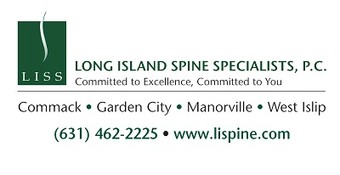|
|

|
« Back
Our son is now a freshman on his high school football team. This is a first for our family. We had to sign a medical waiver releasing the school from liability for any injuries, including concussions. What should we watch for to know if our son does have a concussion?
|
|
Many coaches and family members wonder how can you tell if an athlete has suffered a concussion. The first clue comes from symptoms such as headache, blurred vision, nausea and vomiting, sleepiness and dizziness. Other symptoms can include difficulty concentrating, feeling in a fog or feeling slowed down, ringing in the ears, irritability, and sensitivity to noise.
Loss of consciousness is a very important signal that something serious has happened. But being "knocked out" isn't necessary to have a concussion. Headache is the most common symptom but some players aren't aware of any symptoms.
Symptoms resolve within the first 24 to 36 hours for most athletes. Symptoms persisting beyond a week are not uncommon. These usually clear up within a month's time. Only a small percentage of athletes (1.5 per cent) report symptoms lasting more than 30 days.
The immediate question after a collision is whether or not that player can return-to-play right away and if not, when can he or she get back into action? Symptoms offer some guidance but there are reports of deaths among athletes who failed to report symptoms and went back to play right away.
To avoid the deadly consequences of concussion, medical experts recommend computerized neuropsychologic (NP) testing. This type of test includes questions that evaluate the athlete's brain function including memory, attention, language, and visual-spatial skills. The NP test provides a comparison to expected norms for each task and a baseline from which to measure changes or progress after injury.
The safety of the player has to be the number one priority. Athletes should not be allowed to return to play until it is safe to do so. Neuropsychologic (NP) testing is one way to assure that players get the protection and treatment they need after a significant head injury.
|
References:
|
|
|
« Back
|
|
|
|
*Disclaimer:*The information contained herein is compiled from a variety of sources. It may not be complete or timely. It does not cover all diseases, physical conditions, ailments or treatments. The information should NOT be used in place of visit with your healthcare provider, nor should you disregard the advice of your health care provider because of any information you read in this topic. |
 | All content provided by eORTHOPOD® is a registered trademark of Mosaic Medical Group, L.L.C.. Content is the sole property of Mosaic Medical Group, LLC and used herein by permission. |
|
